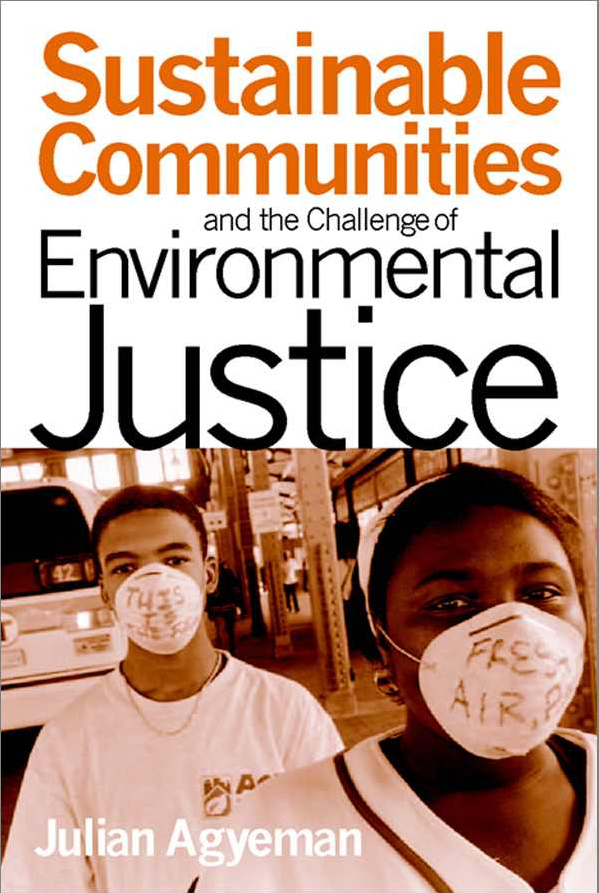Sustainable Communities and the Challenge of Environmental Justice
 Published by: NYU Press
Published by: NYU PressRelease Date: August 1, 2005
Pages: 245
ISBN13: 978-0814707111
Buy the Book: Amazon, Barnes & Noble, IndieBound, Books-A-Million, Apple Books, NYU Press
Overview
In this book, Julian Agyeman argues that the environmental justice and sustainable communities movements are compatible in practical ways. Yet sustainability advocates have not always partnered with the challenges of environmental justice.
Sustainable Communities and the Challenge of Environmental Justice explores the ideological differences between these two movements and shows how they can work together. Agyeman provides concrete examples of potential model organizations that employ the types of strategies he advocates. This book is vital to the efforts of community organizers, policymakers, and everyone interested in a better environment and community health.
Reviews
“Agyeman’s advocacy for just sustainability effectively addresses the equity deficit of mainstream sustainability. In his conclusion, he suggests a number of strategies that could be of use to those of us in the design community. One of these is the concept of an ‘environmental space,’ built on the idea of a sustainable community place. In this matrix, not only are traditional environmental resources considered but also included in the equation are social and economic entitlements. Environmental space analysis is exactly the kind of hybrid problem that design professionals commonly work with. This creative reframing of urban space and social justice issues is a strategy that might well be duplicated in rethinking our course projects and other scholarly pursuits.”
—Journal of Architectural Education
“A lively and thought-provoking text, with informative case study examples, which allows the reader plenty of opportunity to follow Agyeman’s reasoning and analysis.”
—Journal of the American Planning Association
“Covering both theory and proactive, environmental organizations are indexed according to their commitment to justice and/or sustainability principles as set forth in their mission statements. Examples illustrating broad issue categories of successful projects that exemplify just sustainability enhance the discussion.”
—Choice